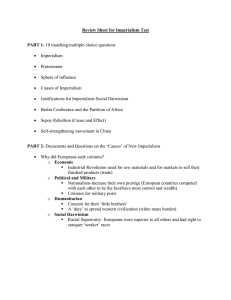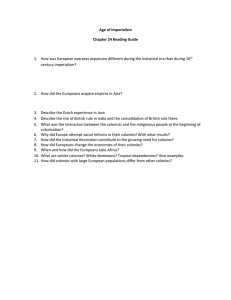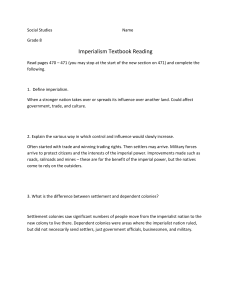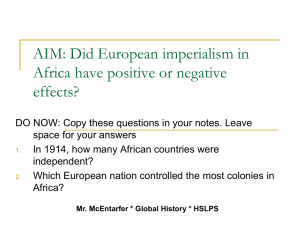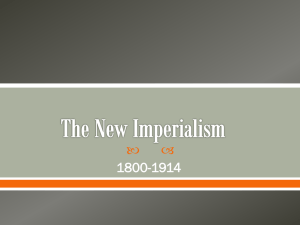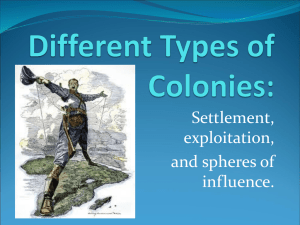Chapter 27. The Age of Imperialism
advertisement
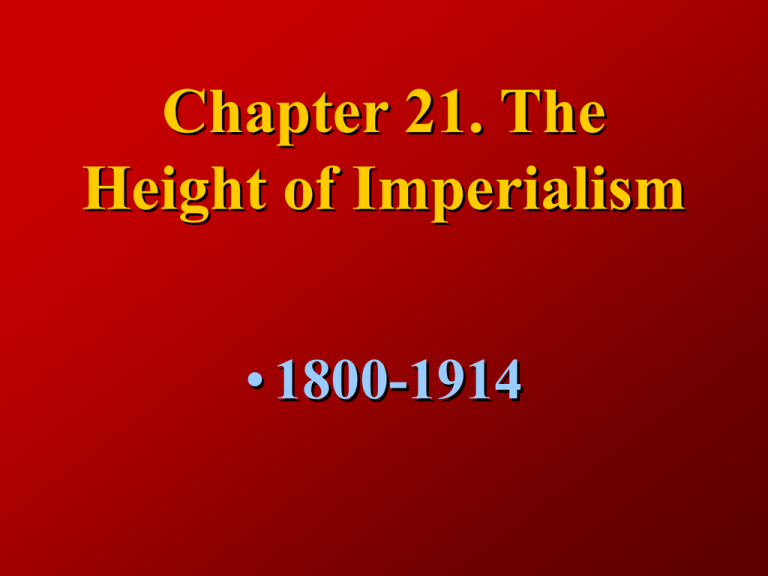
Chapter 21. The Height of Imperialism • 1800-1914 The New Imperialism • In the 19th century a new phase of Western expansion into Asia and Africa began – they became a source of industrial raw materials and a new market for manufactured goods – in the past goods were traded for spices, tea, and silk, now they were traded for oil, tin, and rubber • Silk and Spice trade lose importance • Colonies viewed as markets for European goods, and sources of raw materials • Instead of trading posts, Europeans wanted complete control of Colonies • National pride • Social Darwinism Imperialism – the extension of a nation’s power over other lands • European countries had set up colonies in the Americas and trading posts around Africa – they used to be content with a few trading posts, but now they wanted direct control over vast territories – this was called “new imperialism” • Reasons why Westerners wanted to increase their search for colonies after 1880: – Economic motives – wanted direct control over the areas with raw materials and markets – Rivalries – as European affairs grew tense, they wanted to acquire colonies to gain an advantage over their rival – Colonies were a source of national prestige – Social Darwinism and racism – social Darwinists believed that the most fit nations would prevail and racist believed that race determines traits and capabilities and that some races are superior to others – Religious and humanitarian motives – believed that Europeans had a moral responsibility to civilize primitive people – to bring them the Christian message and democracy and capitalism • “White Man’s Burden” • Belief that Europeans had a right and responsibility to bring benefits of civilization and Christianity to “Heathens” Enabling Factors • Steamships, trains and telegraph • Quinine—protection from malaria Superior weapons (Maxim gun) Forms of Control • Direct: Local Rulers were removed from power and replaced with a new set of officials brought from the mother country • Indirect- local rulers were allowed to maintain their position of authority and status • Assimilation--educate everyone and make them become more European Great Imperial Powers in 1900 Colonial Takeover in Southeast Asia Dutch control Indonesia British take Malay Peninsula and Burma • Singapore becomes world’s busiest port French take Indochina Siam (Thailand) remains independent, modernizes USA Spanish-American War 1898 US takes Philippines and Guam (also Puerto Rico and Cuba in Caribbean) • Philippine Insurrection (led by Emilio Aguinaldo) put down in 1902 • US modernizes Philippines Intermission
